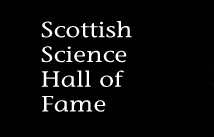James Clerk Maxwell (1831-1879)
James Clerk-Maxwell : [obituary]
of Edinburgh, Session 1879–80.
339
of true science, and of religion itself, in these days of much vain-
babbling, pseudo-science, and materialism. But men of his stamp
never live in vain; and in one sense at least they cannot die. The
spirit of Clerk-Maxwell still lives with us in his imperishable
writings, and will speak to the next generation by the lips of those
who have caught inspiration from his teachings and example.
Scotland may well be proud of the galaxy of grand scientific men
whom she numbers among her own recently lost ones; yet even in
a company which includes Brewster, Forbes, Graham, Rowan
Hamilton, Rankine, and Archibald Smith, she will assign a place in
the very front rank to James Clerk-Maxwell.
Dr THOMAS RICHARDSON COLLEDGE.
Dr THOMAS RICHARDSON COLLEDGE died on the 28th of October
at Lauriston House, Cheltenham, in the eighty-third year of his age.
He was a pupil of Sir Astley Cooper, and entered upon his profes-
sion sixty-two years ago; nor did he wholly relinquish his practice
until 1878. To him, during his practice in Canton and Macao,
belongs the merit of originating the first infirmary for the indigent
Chinese, which was called after him “ Colledge’s Ophthalmic
Hospital.” He was also the founder of the Medical Missionary
Society in China, and continued to be president of that society to
the time of his death—a period of forty-two years. He laboured in
Canton and Macao for more than twenty years, first under the Hon.
East India Company, and then under the Crown as surgeon to His
Majesty’s Superintendents. On the abolition of the office he had
held, and his consequent return to England, deep regret was
expressed by the whole community, European and native, and a
memorial of his services was addressed to Her Majesty the Queen in
1838 by the Portuguese of the neighbouring settlement of Macao.
Lord Palmerston, in recognition of his services and merit, thought
it right to award him an annuity. Dr Colledge took the degree of
M.D. in 1839, and became F.R.C.P. of Edinburgh in 1840, and
F.R.S. of Edinburgh in 1844. The last thirty-eight years of his
life were spent in Cheltenham, where he won universal esteem by
his courtesy and skill.
VOL. X.
2 s

![James Clerk-Maxwell : [obituary] - Page 339](https://deriv.nls.uk/dcn4/7449/74491733.4.jpg)
